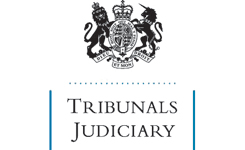|
Notes:
|
Court of Appeal decision reported as [2017] AACR 8.
Housing benefit – whether rent unreasonably high – comparison of subsidised and unsubsidised rents
The claimants each applied for housing benefit towards their rent of £257.87 per week for accommodation for themselves and their families in a women’s refugee run by a charity. The charity had previously charged lower rents but, following a loss of public funding, the rent had been substantially increased. £242.17 per week was in principle eligible rent for housing benefit purposes but the local authority limited the eligible rent in each case to £179.20 per week under regulation 13(3)(b) of the Housing Benefit Regulations 2006, on the basis that the rent was unreasonably high compared to that for suitable alternative accommodation available elsewhere. The First-tier Tribunal upheld those decisions. The Upper Tribunal allowed the claimants’ further appeals and determined the net eligible rent to be £242.17 per week, holding that suitable alternative accommodation could include subsidised accommodation but that any comparison must be “like with like” as far as was reasonably possible so that, in the light of R v Coventry City Council, ex parte Morgan (also known as R v Coventry City Council, ex parte Waite), (QBD) 7 July 1995 (unreported), for an unsubsidised rent to be unreasonably high in comparison with that charged by subsidised landlords, it would normally have to be shown that the size of the rent exceeded what the other rent would have been but for any element of discount. It expressed concern that the number of places needed in hostels for victims of domestic violence might well exceed the number of places for which public funding was available so that, unless housing benefit covered the full rent, unsubsidised hostels could not be operated, which would leave victims of violence either homeless or at risk of further violence. The local authority appealed.
Held, allowing the appeal, that:
1. regulation 13(3)(b) does not compel a local authority to enquire into the circumstances of the landlord and therefore the concept of a rent being “unreasonably” high is that the rent is unreasonably high for the claimant to pay, rather than unreasonably high for a particular landlord to charge (paragraphs 39 and 40);
2. an authority could reduce an eligible rent which was “unreasonably high” by an “appropriate” amount, except where regulation 13(4) applied and suitable alternative accommodation was unavailable, but, in exercising that discretion in regulation 13(3), an authority was not obliged to reduce the eligible rent by the full amount of the difference between the rent the claimant was paying and the rent that would be paid for suitable alternative accommodation; the requirement was simply that, in judging what an “appropriate” reduction would be, it must have regard, in particular, to the cost of the suitable alternative accommodation: R (on the application of Mehanne) v City of Westminster Housing Benefit Review Board [2001] 1 WLR 539 followed (paragraph 43);
3. the Upper Tribunal had erred in its approach because its concerns were not relevant to the comparison of rents under regulation 13(3)(b) but, insofar as they went to the risk of vulnerable claimants finding themselves without accommodation suitable for them, such concerns could be taken into account in the discretion given to an authority under regulation 13(3) and in the provisions of regulation 13(4) and (9)(b) (paragraph 44);
4. it was hard to see how the approach taken in ex parte Morgan could be justified but it was not necessary to go so far as to hold that the case was wrongly decided because the Upper Tribunal had in any event departed from that approach (paragraph 48).
The court remitted the case to the Upper Tribunal to decide afresh whether the rent was unreasonably high and, if so, the amount by which the eligible rent should be reduced under the discretion in regulation 13(3) in the light of Mehanne.
|
